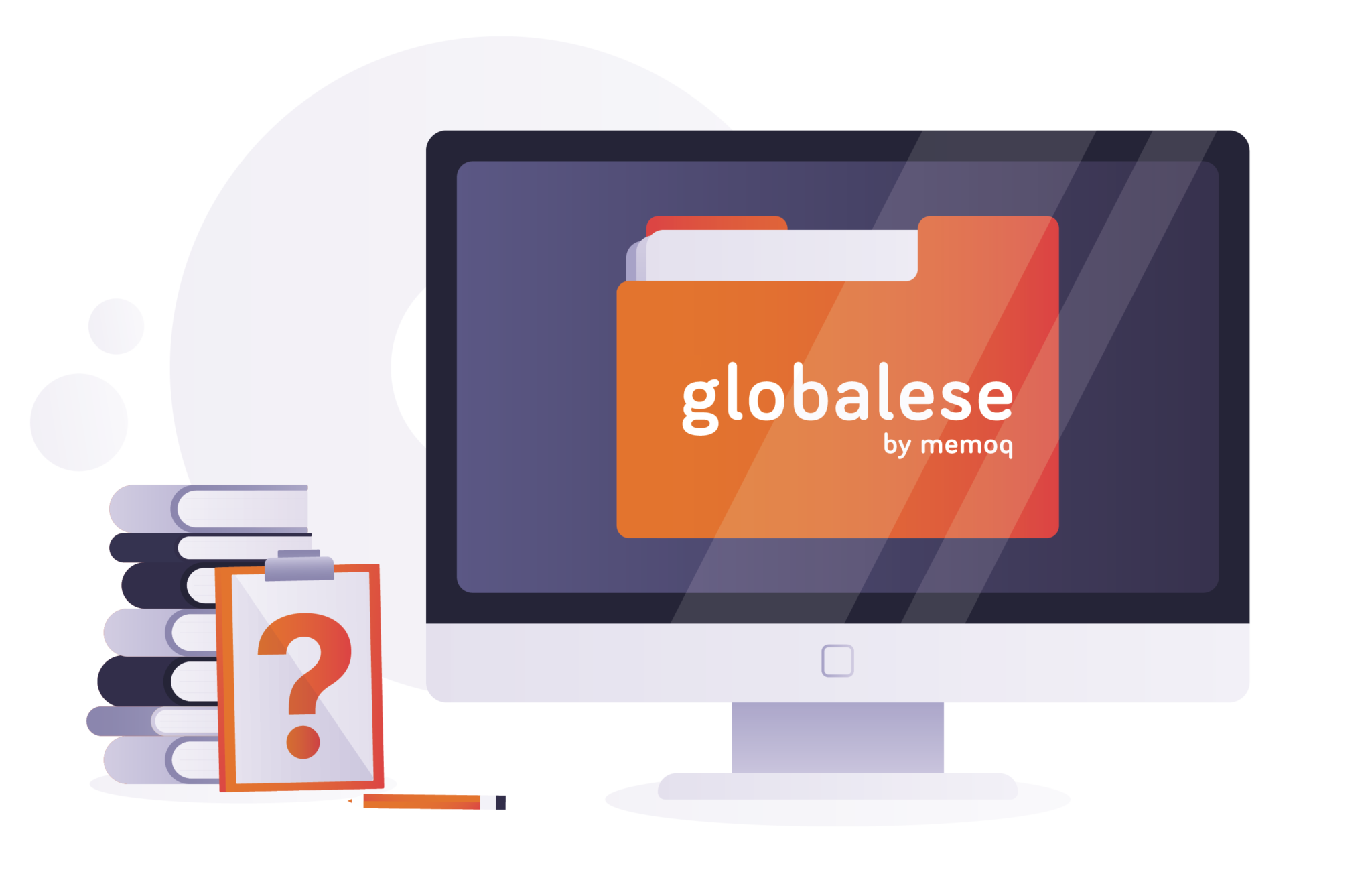This FAQ is all about the most Frequently Asked Questions on first purchasing and maintaining the license for globalese by memoQ users. Before submitting a ticket to Support, make sure to read through this page with our dedicated articles.
Who is globalese by memoQ for?
Enterprise customers and language service providers can benefit the most from it.Will globalese by memoQ be developed further?
Services provided by globalese by memoQ are continuously being developed to provide the latest translation automation technology to clients.Will there be a price increase?
Existing Globalese customers will remain at the present price for at least twelve months. However, there is likely to be an adjustment in pricing in the future for new customers and new services/features.How will support work for globalese by memoQ?
memoQ provides 24/7 support. Over the coming months, we will be integrating Globalese support into memoQ. You may expect memoQ support to deal with all globalese by memoQ support tickets by the end of 2024. memoQ support has an outstanding 97% satisfaction rate.I use Globalese with another TMS. Will existing integrations be supported?
Yes. We will continue supporting all existing integrations with other TMS solutions.What are the advantages of globalese by memoQ compared to other MT solutions?
Benefits include the option for custom and AI-powered engines, terminology support, custom prompts, tag handling, and, last but not least, the price-to-quality ratio. We highly recommend that you start a free trial so that you can judge for yourself.What are the supported language combinations?
Check the features page to see all language combinations.Can I use terminology lists in my engines?
Yes, absolutely. You can add a terminology list to your engine. The terms and phrases listed in the terminology will be given priority during translation.Do I need to do any preparation on my training data?
If you are using standard formats such as TMX or XLIFF, no technical cleanup of the training data is required. There is no need to remove tags. However, it’s important to use relevant, clean, and consistent training data from a language perspective. This means that a cleaning from a linguistic perspective is always recommended.Does the size of the training data matter?
Yes and no. Using more training data usually improves the quality, but quantity is not everything. it is just as important to use relevant and consistent content for your training. Therefore, if you meet the minimum requirements in terms of volume, it is more important to use qualified data. It makes no sense to increase the training data set with unknown or unqualified content. In some cases, reducing the training data by removing obsolete content can even improve quality.Is my training data safe?
Yes, your training data is safe. Each globalese by memoQ system is a dedicated, single–tenant system. The training data is only used to train your engines, run the translations, and improve the quality of your engine. We are not providing your data to third parties, nor are we using your data to improve the engine of any other customers.What are the supported formats?
We natively support the most important standard bilingual formats: XLIFF, TMX, TBX, and bilingual TMS files. Other formats can be supported through TMS solution or API integration.How long does it take to train an engine?
It depends on the size of the training data, the engine, and the type of training. Stock+ engines can be trained quickly, usually taking between half an hour to a few hours. Domain-adapted engines are initially trained for a longer period of time, typically between 24 and 32 hours. However, a quick training only takes a few hours.What is the difference between full and quick training?
A full training always begins from scratch. Therefore, the training time is longer. In exchange, the engine will have a better understanding of the new or updated Master corpora’s content. Quick training runs faster, but it can be thought of more like tuning of the existing engine based on the new or updated Master training corpora, rather than full training.When should I run a full training and when a quick training?
A full retraining of an engine is recommended if there are significant changes to the master corpus. For example, if a larger volume of new master corpus is available (over 10% of the existing master corpus size), or if a terminology change was performed in the master training data set, it is recommended to run a full training. However, if only a smaller amount of new training data has been added to the master corpus, it is enough to run a quick training.How often should I retrain an engine?
This depends largely on how often new training data is available for the master corpus of the engine. For a frequently used engine with quickly growing new training data sets, a typical training cycle can be one full retraining every month, with weekly quick training during the month. For less frequently used engines, a typical training cycle can be one full retraining every three months, with one quick training every month.What is the difference between the Document Translation and the Cloud Text Translation service?
The Document Translation service is an asynchronous translation service which can be used for batch pre-translation of files via the browser-based UI, TMS plugins or the API. On the other hand, the Cloud Text Translation service is a synchronous translation service with auto-scaling feature. It can be used for online propagation of MT matches during translation from a TMS, for pre-translation or for any synchronous service via APIs. The two services have a different price tag and use different plugins and API integration.Couldn’t find an answer to your questions in this FAQ? Please contact us at sales@memoq.com. If you have already contacted us, due to the high volume of incoming requests, please allow at least 24 hours for our team to reply.
Ready to dive in?
If you would like to learn more about globalese by memoQ, please click below to request a sales consultation.
